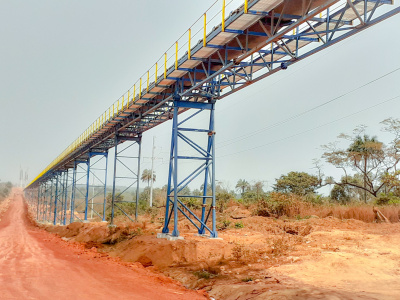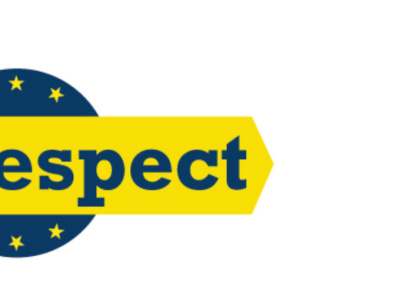
Challenges 2014: Setting countries up to fail? Monitoring the implementation of the New Deal for fragile states
+++ ECDPM Challenges blog series. Post number seven +++
The New Deal has the potential to be a real game changer for engagement in fragile states, if the spirit of the New Deal is genuinely adhered to and ambitions are not set at unrealistic levels.
At the end of 2013, the New Deal for Engagement in Fragile States is making strides, with the recent launch of the Somali Compact, followed on its heels by South Sudan. Other countries, such as Sierra Leone, have already incorporated elements of the New Deal in their national development strategy. Going into 2014, what are some of the most pertinent issues I would want to watch when following New Deal implementation?
The New Deal is about putting the local first, by moving beyond the rhetoric of ‘local-ownership’ and ‘context matters’. It is about forging contextualized, country-led, ‘best-fit’ strategies for moving out of fragility. It is about putting peacebuilding and statebuilding at the heart of development efforts. And it is about reshaping the way the international community goes about its (aid) business in fragile states.
Donors Love Matrices, Reality Doesn’t
It is important to focus on whether the spirit of the New Deal is deeply incorporated in national development processes. The New Deal document lays out a sequential process for New Deal implementation, starting with fragility assessments, developing one plan (as opposed to many) and a compact to implement the plan. In some cases this sequence can work, for instance in South Sudan, but in others holding on too tightly to this sequencing may lead to unnecessary overlapping processes. Countries like Sierra Leone have already incorporated elements into their Agenda for Prosperity.
Let us also not fall into the trap of embedding the realities of peacebuilding and statebuilding into overly linear processes and matrices. In fragile states especially, progress will be slow and convoluted, at times one step forward, two steps back, which cannot be judged by linear management criteria. The spirit of the New Deal is about accompanying a country in this slow, emergent, and deeply political process.
Keep Watching the Local-Global Nexus
Moving beyond rhetoric on context-specificity and country-ownership means genuinely turning one’s eye to country-level ownership and country-specific trajectories. Yet, the international community has a need for a globally applicable assessment framework for monitoring progress in fragile states. How to reconcile the desire for a global monitoring framework with the need for idiosyncratic and context-driven pathways?
This tension came out in the relatively strong stand taken by the g7+ on the common indicators, when they challenged the notion that all countries could be assessed through the same indicators. The g7+ is attempting to refocus the attention to measuring progress at country-level using country-specific indicators, not generic ones.
This local-global tension lies at the heart of New Deal implementation, and will continue to re-appear in many disguises, especially when more Compacts will be developed and monitoring of progress will take shape. I will continue to watch, hoping that the local will prevail.
Putting TRUST at the Centre
The international community has a bad track record when it comes to changing donor behavior in fragile states. The 2011 Monitoring Survey of the Principles of Good International Engagement in Fragile States and Situations shows that international performance is way off-track, especially when it comes to aid volatility, development partner fragmentation and risk aversion. Its findings should serve as a wake-up call for development partners. The New Deal is intended to address these weaknesses, but what exactly would make the New Deal succeed where the Paris Declaration, the Accra Agenda for Action and the above mentioned Principles for Good International Engagement have failed?
Both Somalia’s Compact and Afghanistan’s Mutual Accountability Framework plan to jointly develop indicators to measure progress on the commitments. The International Dialogue’s Working Group on Implementation is working on indicators for the TRUST element of the New Deal. So far I have seen little that gives me the comfort to think that a real new way of doing business is being developed by the development partners.
I do hope that we will get to ambitious quantitative targets and solid monitoring systems that will incentivise the step-change that is needed.
Setting Countries up to Fail?
Recent research presented in the WDR 2011 shows that timeframes for peacebuiding and statebuilding are unrealistic and that ‘wishful thinking on timing pervades development assistance when it comes to governance and institution building’. Looking at the Somalia compact, its ambition is indeed huge and its timeframes tight. Some of the things it aims to achieve in three years took Afghanistan almost a decade to achieve. The pressure on the Somali government to produce results is high, both towards its own constituency and the international community supporting the federal government. The risk however is that Somalia is setting itself up to fail by placing unrealistic demands upon itself.
These are the challenges I will watch out for in 2014. In my mind, the New Deal has the potential to be a real game changer in the way development assistance is conducted in fragile states. Yet, the g7+, the development partners, and those watching out from outside will have to stay vigilant to ensure that the principles of the New Deal are indeed maintained and put to full practice.
The views expressed here are those of the author, and may not necessarily represent those of ECDPM.



